musical instrument
Latest
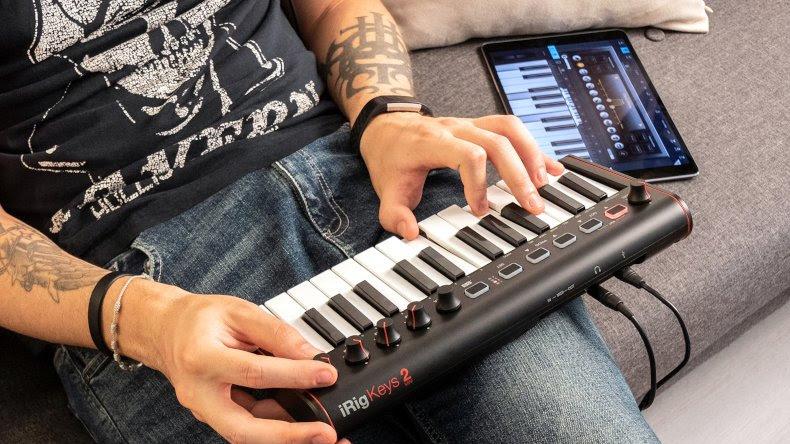
iRig Keys 2 Mini is a MIDI controller with a headphone jack for your iPhone
iRig is no stranger to the world of portable MIDI controllers. And, frankly, there's no shortage of great keyboards out there that will fit neatly into your backpack. But IK Multimedia was one of the earlier brands to start building music-making gear specifically with the iPhone and iPad in mind.
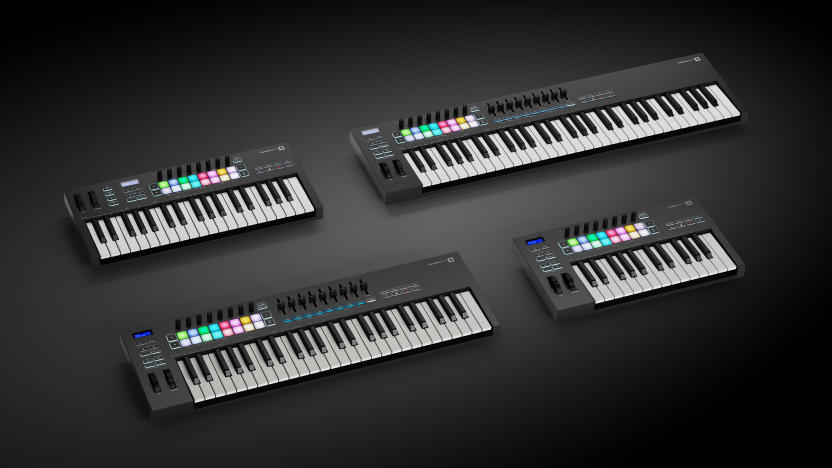
New Launchkey MK3 MIDI controllers add a powerful arpeggiator
Novation is updating its Launchkey MID controller lineup with deeper Ableton integration and a powerful new arpeggiator.
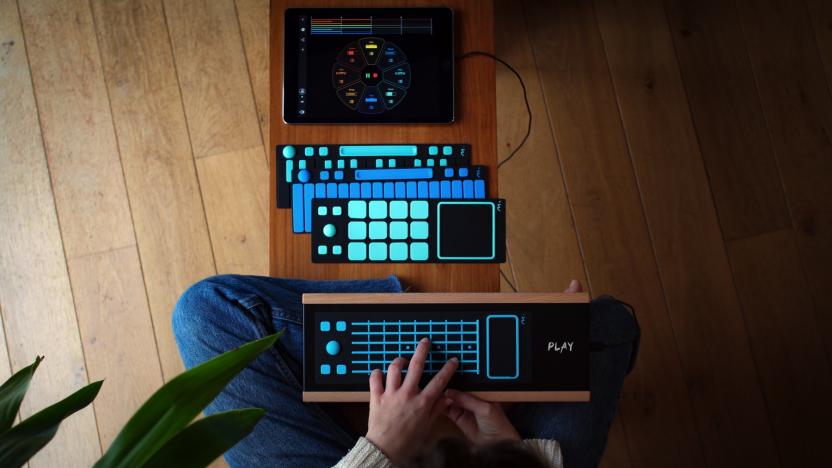
Joué Play is a cheap, simple and customizable MIDI controller
The Joué Play lowers the price -- $289 with four overlays -- and adds a companion app that allows you to quickly and easily start making music with built in sounds. In fact, if you ask the company, it think the Play will appeal to even those who can’t play an instrument, but want to make music.
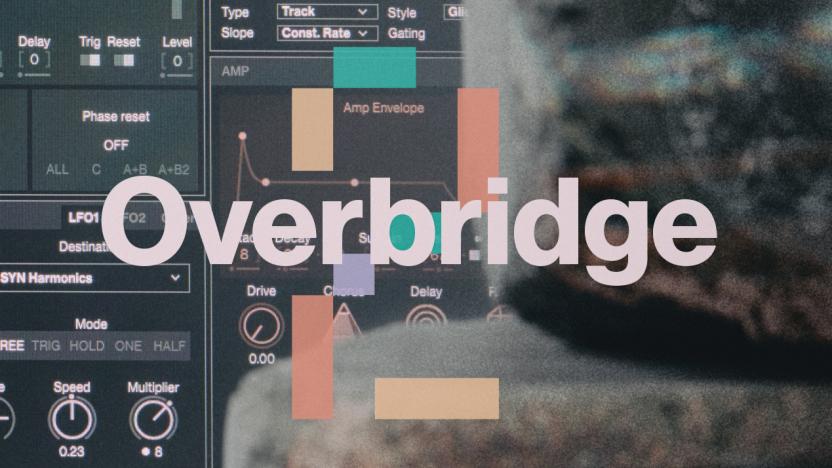
Overbridge 2 tears down the wall between your PC and your synth
But now Overbridge 2 is finally and officially here.
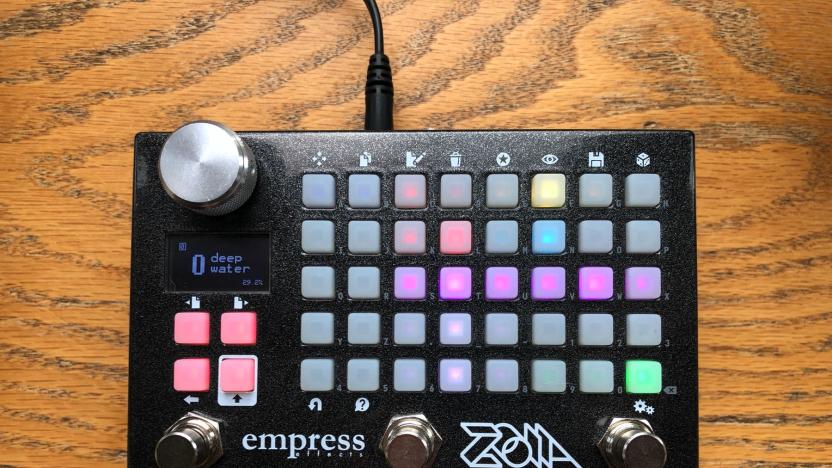
ZOIA review: A complex and rewarding modular effects pedal
Empress Effects ZOIA is unquestionably a one-of-a-kind effects pedal. Its interface can be daunting at times, but it puts an almost limitless number of sounds at your feet.
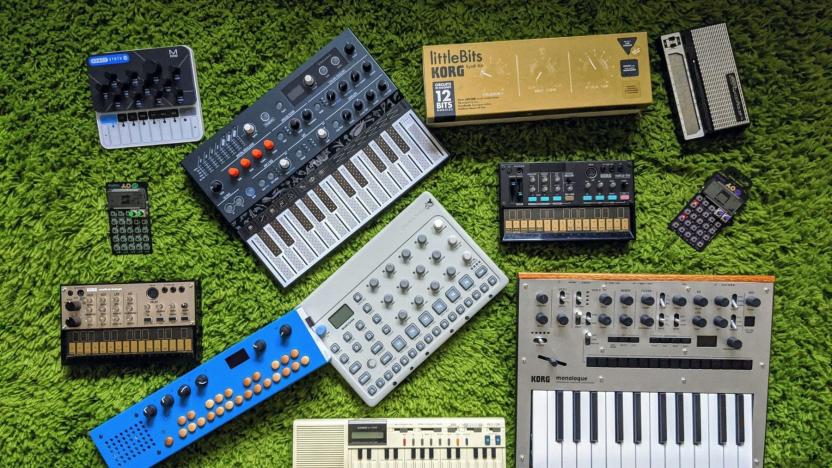
A beginners guide to buying a synth
It's no secret that there's a growing interest in synths, drum machines and other electronic music instruments. There are many reasons for that -- most obviously because electronic music is now popular music. But it's also because improved technology and manufacturing have driven the prices of such devices low enough that even the most casual musician can dabble. Plus there are a dizzying number of options for you to choose from at the entry level. So how do you get started? Should you get a portable and affordable Volca? Or that new Model:Cycles that we liked so much? And are Behringers actually any good? I know you have a lot of questions, so let's get right to it.

Model:Cycles review: An affordable and approachable FM groovebox
Fair or not, Elektron has a reputation for making complex and kinda pricey electronic music gear. Last year though, it made a serious play for the entry level with the Model:Samples ($299), an affordable, sample-based groovebox that simplified Elektron's unique workflow for beginners. In a lot of ways, it's a stripped-down version of the company's Digitakt sampler. If you're familiar with the Digitakt, you've no doubt often seen it paired with the Digitone, a sort of sibling groovebox that relies on FM synthesis instead of samples. So it only makes sense that Elektron would want to give the Model:Samples its own FM-based partner in crime. Physically the Model:Cycles is basically a palette-swapped version of the Model:Samples -- Subzero to the M:S' Scorpion. At its core it's the same six-track monophonic sequencer -- but with a streamlined version of the Digitone's sound engine under the hood. Obviously though sacrifices had to be made to hit that $299 price point. As a result, the Cycles isn't exactly a budget-friendly replacement for the Digitone. It's very much its own instrument.
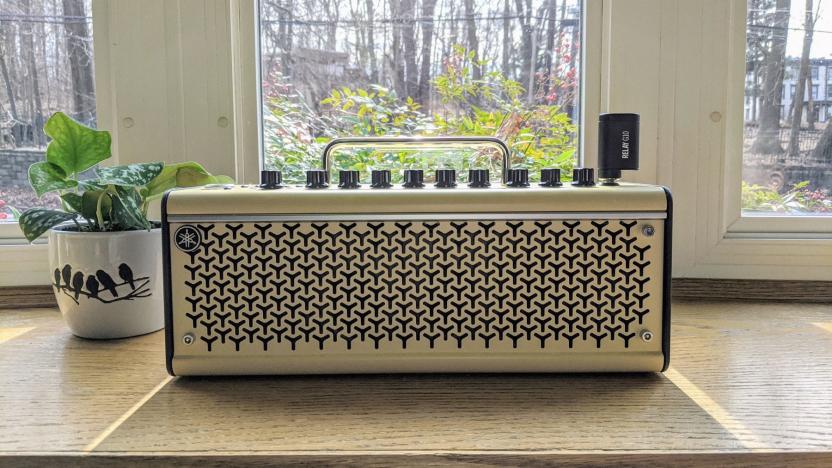
Yamaha’s tiny wireless guitar amp gets everything right but the price
With the original THR line of guitar amps, Yamaha basically invented a new product category: the connected desktop amplifier. It filled a need that honestly many guitar players didn't even realize they had. These amplifiers are small enough to sit on a table or desk, they sound great even at low volumes and they're stylish enough that you won't feel compelled to hide them when company comes over. You don't have to search long or hard to find people singing their praises. I bought one a couple years ago and have zero regrets. But the THR amps weren't without flaws. And in the nine years since they were introduced, the competition has caught up. The highly revered Roland Katana line made a play for the space with the Air. And the iconic Vox brand introduced Adio. So Yamaha announced the THR II in September with new features, new amp models and a rich new app in the hopes of not only keeping pace but also showing the competition it's still the benchmark for tiny amps.
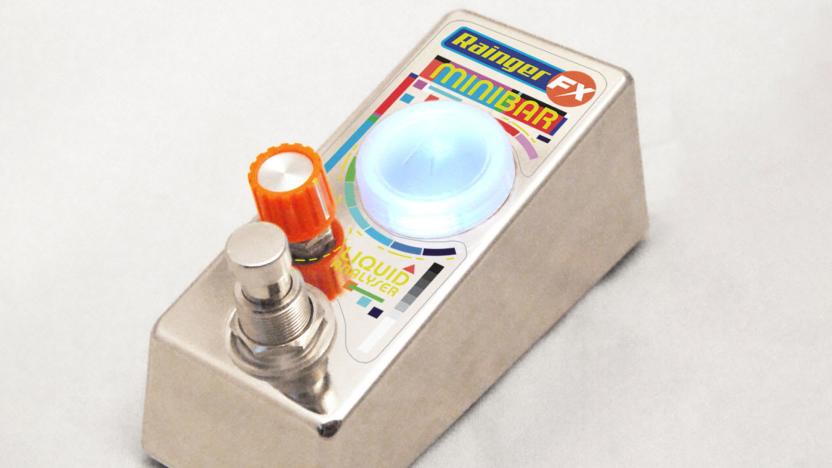
Finally: A guitar pedal you’re supposed to spill beer on
I'm not going to pretend to be an expert on the history of guitar pedals. But, I'm fairly confident in saying there has never been a pedal quite like Rainger FX's Minibar. It's an overdrive pedal, but one that requires a little something extra to work -- a liquid. There's a small container on the top that says "pour liquid here" and, until you put something in there it simply wont make a sound.

MicroFreak update adds new oscillator and modes for simplified noise-making
When Arturia announced the Microfreak at NAMM last year, we told you there was nothing stopping the company from adding new oscillators down the line through firmware updates. Well, guess what -- it's got a new oscillator.

The Moog Subsequent 25 offers classic synth bass with modern amenities
Anytime Moog releases a new synth it's worth getting at least a little excited about. And the Subsequent 25 (or Sub 25) is no exception. It's the successor to the Sub Phatty -- basically the standard bearer for classic Moog bass sounds over the last several years. The Sub 25 takes what made its predecessor such a powerful and aggressive tone monster and just goes bigger.

Akai's MPC One is a (reasonably) affordable music production machine
It's been a few years since Akai's iconic MPC line has seen a significant new entry. But at NAMM 2020 the company is not only introducing a new model, but specifically going for the entry level... or at least what qualifies as entry level for an MPC. The MPC One in a $699 standalone production studio that basically takes all the essential parts of the series and skips the luxuries.

Roland's Zen-Core engine lets instruments share synth sounds
Roland basically abandoned pure analog synths. Instead it's been focused on improving its digital instruments and software that pay homage to the past, while embracing the future. But here's the thing, thanks to powerful audio processors there's very little these days keeping one synth engine tied to any particular device; The Microfreak borrows heavily from Mutuable Instruments Plaits and the Organelle runs patches built in the cross-platform, for instance. Roland has apparently decided this is a harbinger of the future of synthesis and so it's launching Zen-Core, a synth engine that will work across a wide swath of its instruments.
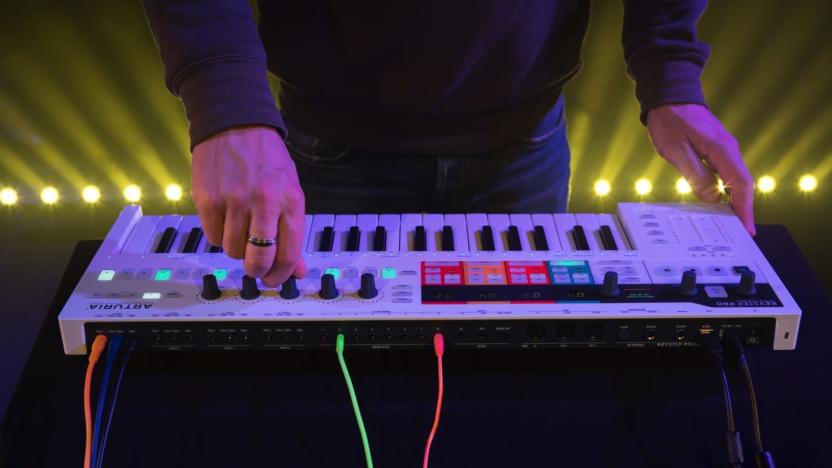
KeyStep Pro aims to be the MIDI command center of your home studio
Arturia's KeyStep is pretty beloved among hardware synth enthusiasts and bedroom producers alike. It's an affordable, versatile and impeccably built MIDI controller. Honestly, the only real criticism I have of it is that, for something that's supposed to be portable, it's just a bit too big and heavy. So, Arturia decided to lean into the idea of the Keystep as a studio staple with the KeyStep Pro and just forgot about the whole portable thing. Instead of simply adding a bunch more keys though, Arturia decided to focus on what made the KeyStep so popular in the first place. It beefed up the sequencing capabilities and added even more ports to the back for connecting gear.
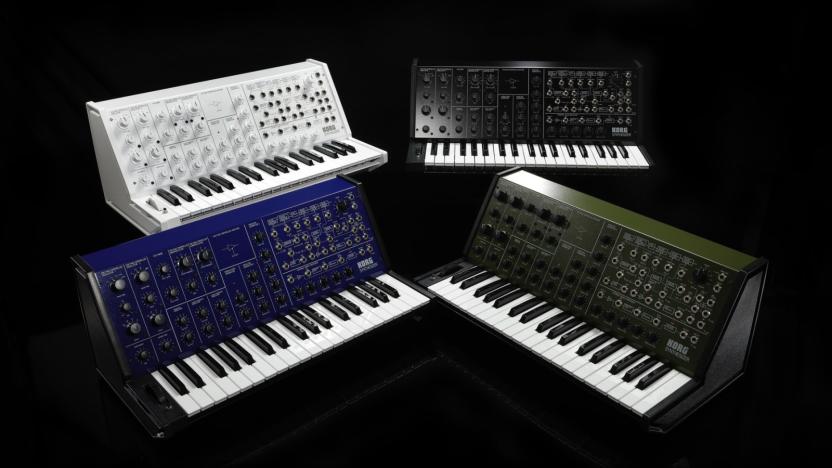
Korg unveils a full-sized, assembly-free MS-20
The Korg MS-20 is an undeniable classic. It's been reborn as an app. As a shrunken-down mini model. As a DIY kit. And then as a DIY kit again, but without the keyboard. Until now though, there hasn't been a ready-to-roll, full-size reissue. But for NAMM 2020 Korg is going all in on the nostalgia with a faithful to a fault rendition of the MS-20 -- right down to the packaging and manual.

ZOIA Euroburo is a modular synth you can put inside your modular synth
Empress Effects ZOIA is perhaps one of the most exciting guitar pedals to come out in recent years. It's effectively a self-contained modular synth in a stompbox format. So, it only makes sense then that Empress would take it and stick in a Eurorack format, so that this mini digital modular synth could sit inside a larger modular synth.
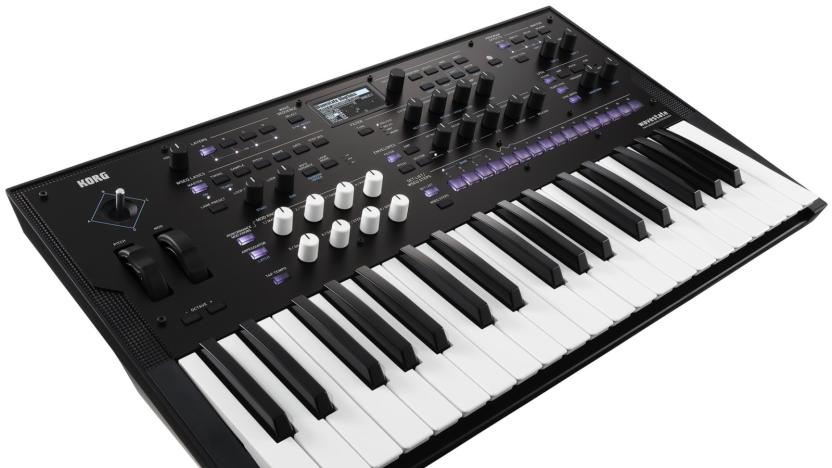
Korg's Wavestate resurrects a classic '90s synth for the modern age
There are countless different styles of synthesis, but one of the more rare and distinctive is vector synthesis, in which different sound sources are dynamically blended to give a sense of movement. One of the most iconic vector synthesizers is the Korg Wavestation. Its unique sound was all over the place in the early 90s, from Genesis, to Depeche Mode to the X-Files. It was particularly well regarded for its pad sounds. But, it was also a very short lived family of instruments, being introduced in 1990 and discontinued in 1994. There have been a few other vector synths (including the Korg OASYS) in the years since, but none have resonated with musicians quite like the Wavestation. Korg is ready to give it a go again with a spiritual successor called the Wavestate.
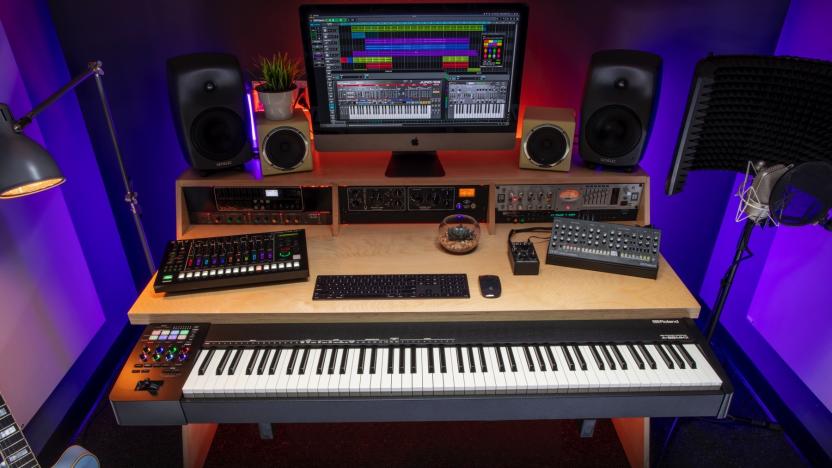
Roland's A-88MKII keyboard embraces MIDI 2.0 and USB-C
MIDI 2.0 is (hopefully) right around the corner. And Roland is trying to stay ahead of the game. The A-88MKII keyboard is the first from the company to support the new standard as it works its way toward finalization. Unsurprisingly, Roland isn't starting its MIDI 2.0 journey with a budget controller. The A-88MKII is a premium music making machine with a wooden body and 88 weighted keys that are made to feel like ivory (even though they're plastic).

Boss’ guitar amp headphones are clever but pricey
There are very few objective truths out there that everyone can seem to agree on. But one of them is most certainly the fact that playing guitar through headphones sucks. Whether you're using a dedicated headphone amp (which often look like relics from the 1980s) or just plugging your trusty over-ears into a tube amp that would wake the neighbors even at the lowest settings, the experience is underwhelming at best. A number of companies have tried different things to try to improve the situation, but Boss' Waza Air are probably the most novel I've seen. For one, this is the first time I know of that a company built a guitar amp directly into a set of headphones. And secondly, the Waza Air includes some pretty unique features that make it feel more like you're listening to an actual amp in a room, rather than just blasting a raw guitar signal into your ears.
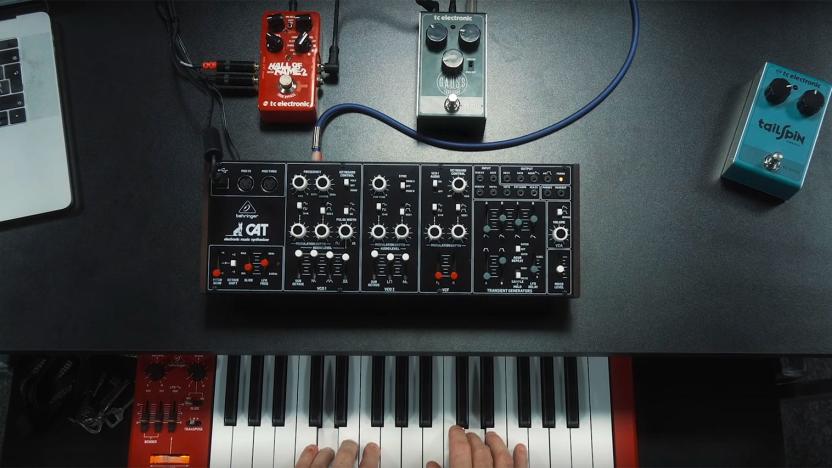
Behringer's latest synth clone is based on the Octave Cat from the 70s
Behringer hasn't been shy about its plans to clone some of the most iconic synthesizers ever made. In November alone, the company debuted the Poly D based on the Minimoog Model D, the Wasp Deluxe based on EDP Wasp and the TD-3 based on the Roland TB-303. Not wanting to let the calendar flip before it could tease its next revival, Behringer showed off the CAT synth earlier this week -- a Eurorack-compatible instrument based on the Octave Cat that debuted in 1976. The original was used by acts like Chemical Brothers, Devo and many more.

